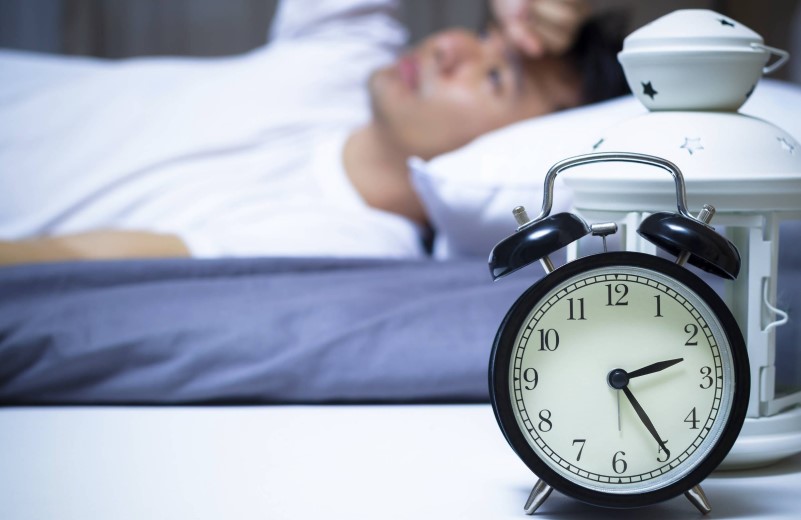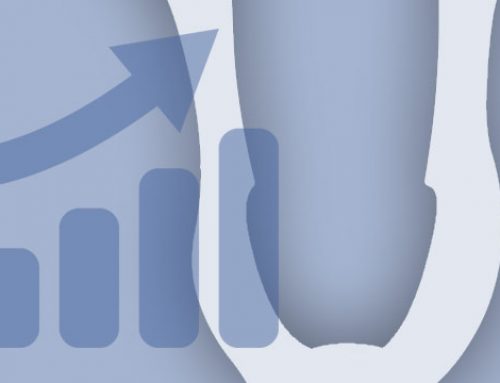Insomnia, a common problem of modern people, is one of the most basic sleep disorders presenting unfortunately implications on general health, mood and efficiency of the individual during the day.
A huge percentage of the population – according to scientific research – suffers from this disorder in their daily lives, a percentage exceeding 30%, while over 50% generally experience various sleep disorders.
Being a serious problem – seems not getting the required attention, allowing the problem to continue producing problems to people.
Proper night sleep (for an adult) should last at minimum 7-8 hours of restful sleep with no disturbances.
This period of 8 hours permits the body to rest, also repairing any damage occurred during the day, allowing the regeneration of cells and relaxing the “busy” brain.
NOTE: Studies associate insufficient or problematic sleep with immune system dysfunction, hormonal disorders, psychological disorders, obesity, cardiovascular disease, increased stress, sexual problems, and even premature ejaculation.
However, what is wrong with sleep disorders affecting so many people?
Is the way of life, the feeding way, affecting sleep in a negative way?
How can we correct the problem of insomnia naturally and when is the time that medical intervention is required?
Main causes are increased stress, the ever-increasing commitments of everyday life, poor quality of life, nutrition of modern man, the dizzying development of technology, the constant change in working hours, the inappropriate behaviors, abuses, but also the aggravated environment of modern big cities (with bright lights and sounds) making difficult the sleep process, creating disorders.
Sleep Disorder – when becomes dangerous

Sleep disorders refer to specific sleep situations, where a person:
- cannot get enough sleep (insomnia)
- wants to sleep constantly (drowsiness)
- falls into hypersomnia (narcolepsy)
- is unable to sleep continuously and constantly interrupts his sleep in the REM phase
- shows night terror
- falls asleep
- shows disturbances in the circadian rhythm of its organism
- has trouble sleeping due to respiratory problems (sleep apnea)
- has trouble sleeping due to increased nervousness (restless limbs syndrome)
- is not able to sleep due to persistent epileptic seizures
- is not able to sleep due to craniocerebral injuries
- or has disturbances in the sleep-wake cycle
A person with a sleep disorder does not necessarily mean that presents a serious health problem. A sleep disorder may not mean something serious and may be a temporary condition, but it can also be a sign of a more serious condition.
Nevertheless, how you know when a sleep disorder is hiding something more dangerous?
Sleep is a complex and very important biological process, occupying almost 1/3 of a person’s life, playing an important role in its neurobiology.
However, during sleep, the body and mind seem to calm down and “rest”, in fact the brain continues to “work” non-stop activating and deactivating the CNS (Central Nervous System) during the various sleep stages.
In this way, the brain allows the body to relax and the mind to calm down and be relieved from the daily load of information received throughout the day.
It is therefore extremely important that this phase of sleep work properly, so the body is “discharged”, rejuvenated, regenerated and recharged for the next day.
Sleep disorders are common, usually not dangerous (especially if treated properly and in a timely manner).
In some cases, however, the situation is more complex. A sleep disorder may be associated with another condition, an organic malfunction, or an obvious need of it.
Often body expresses another underlying dysfunction via a sleep disorder.
Therefore, maybe a sleep disorder (and in our case today: insomnia) expresses a serious neurological disorder or is due to non-neurological conditions.
Situations associated with the problem of insomnia include obesity, depression (or other mental illnesses), cardiovascular disease, respiratory disease, pregnancy, increased stress, anxiety disorders or physical pain.
However, insomnia can also be due to exogenous factors (non-physical / pathological factors).
For example, the turbulent, noisy, annoying environment, the poor nutrition plan, the bright artificial lights from the electronic devices in bedroom, the abuse of caffeine, some medication creating nervousness.
Insomnia – for example – is a very common phenomenon in cancer patients undergoing chemotherapy. In fact, side effects or other dysfunctions (such as diarrhea, constipation, headache, nausea, fatigue, nervousness and depression) accompany insomnia in cancer patients.
Transient and Chronic Insomnia

Insomnia is most often transient and harmless and is due to a change in the person’s habits, emotional, psychological state, or its environment.
However, there are cases where insomnia is chronic, referred to as a condition.
Chronic insomnia can be due to transient insomnia not diagnosed, treated properly and in a timely manner, or even to a mental or pathological condition of the person.
We refer to chronic insomnia when this occurs regularly for at least 3 days (in a row) and for a period longer than 3 months.
Insomnia may manifest as a complete lack of sleep, difficulty in getting sleep, intermittent sleep, insufficient sleep (very short sleep), or as poor quality sleep (non-beneficial sleep).
Chronic insomnia in many cases has a pathological background:
- asthma
- mental illness
- frequent urination
- gastrointestinal tract disorders
- chronic pain
- chronic obstructive pulmonary disease
- rhinitis
- obstructive sleep apnea
- restless limbs syndrome
- encephalopathy
- arthritis
- back pain
- obesity
- anxiety Disorder
- cardiovascular diseases
- respiratory problems
- myosceletical problems
- allergies
Therefore, it’s important, especially when the problem of insomnia persists and is not treated by natural methods, that the person consults a doctor for further examinations and control of state of health in depth.
Insomnia often requires the help of a doctor and a psychologist to fight stress exacerbating the problem of sleep disorder.
Usually the doctor before prescribing any medication (with benzodiazepines, melanin receptor agonists or non-benzodiazepine hypnotics) recommends modifying the daily routine and habits of the person in order to improve the conditions for achieving a quality sleep.
Tips for Improving the Quality of Sleep
- fixed working hours
- fixed sleep schedule
- avoid abuse (cigarette, alcohol, caffeine, food, pills, sugar & sweets, drugs, caffeinated soft drinks, even physical exercise)
- avoid dealing with electronic devices (TV, mobile, tablet)
- proper diet plan
- keeping problems and bad thoughts out of the bedroom area
- sexual intercourse with a sexual partner (helps to relax)
- closure of artificial light sources
- keep the bedroom at a moderate temperature (neither too cold nor too hot)
- avoid taking stimulant drugs just before bedtime
- avoid strenuous physical activity before bed
- lukewarm shower before bed (helps relax nerves & relieve stress)
- avoid long naps (maximum 30 minutes)
- use of hygienic fabrics that allow the body to “breathe” (pajamas, sheets, blankets)
- avoid consuming cocoa or dark chocolate late at night
- reduce ambient noise pollution in the bedroom
- selection of appropriate pillow for proper neck posture
- selection of appropriate mattress for correct posture
- proper ventilation of bedroom
- strengthening our immune system with proper nutrition and proper nutritional supplements
- use some supplement help/assistance?
Role of age in Insomnia

It is a fact that the problem of insomnia is a very common phenomenon at the third age. This is mainly due to medications, to the low levels of activity, change of daily habits, but mainly to various health problems.
This does not mean, however, that insomnia only affects older people. Insomnia can occur even in children or adolescents. The causes of insomnia at these ages are usually completely different from the causes of insomnia in an adult or an elderly person.
Foods assisting to obtain Quality Sleep
- chamomile
- sage
- valerian
- louiza
- bananas
- pineapple
- nuts
- avocado
- oats
- dairy products
- cherries
- honey
- watermelon
- whole grain products
- broccoli
- peas
- corn
- eggs
- seeds
- tofu
- spinach
Insomnia due to magnesium nutrition
Sometimes insomnia is a sign of a nutritional deficiency in organism, as such a case is magnesium deficiency.
Magnesium plays a catalytic role – among other things – in the quality of a person’s sleep, being an important metal participating in various biochemical tasks of organism and determining its proper functioning.
Magnesium also seems to play a key role in the immune system, the psychological state of the individual, its hormonal balance, musculoskeletal state and its nervous state.
TIP: It is recommended to consume about 320 mg of magnesium for women of 30 years and older & 420 mg of magnesium for men 30 years and older, on daily basis. Women during pregnancy should take an extra 40 mg of magnesium per day, while adults up to 30 years of age should take 310 mg and 410 mg of magnesium for women & men respectively





